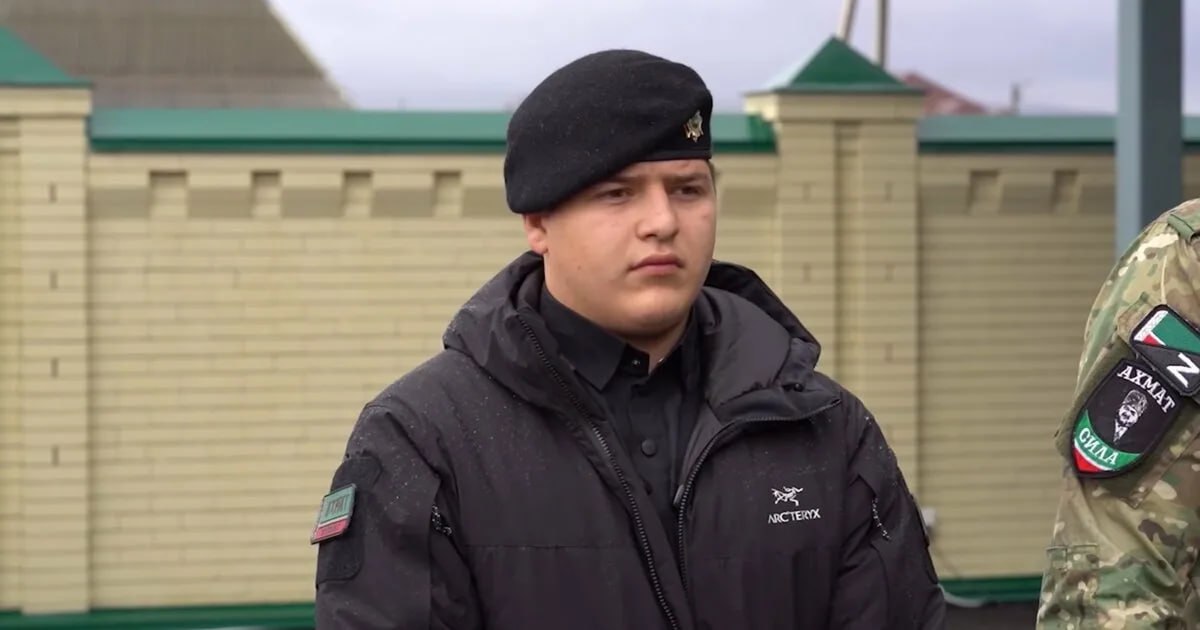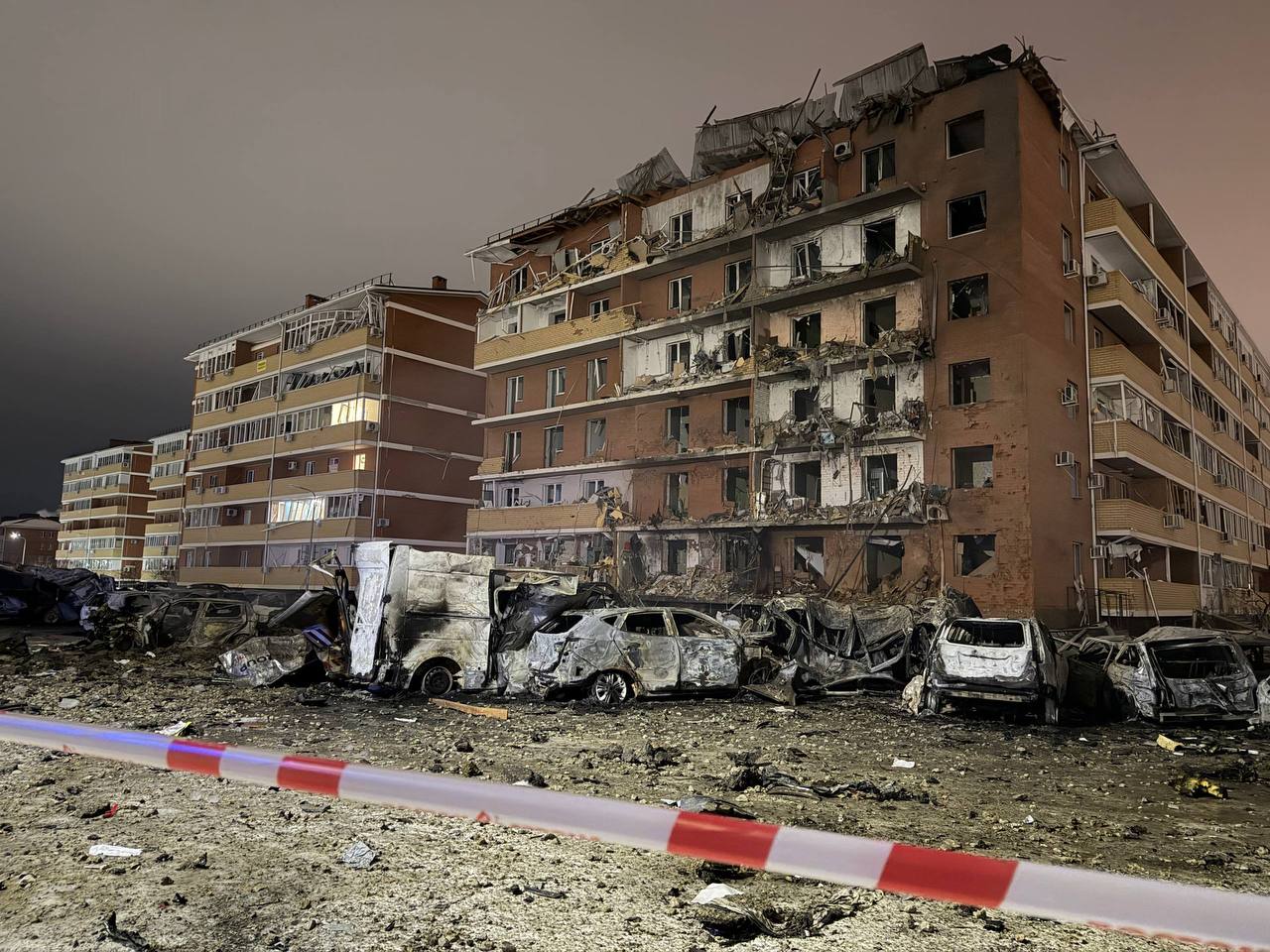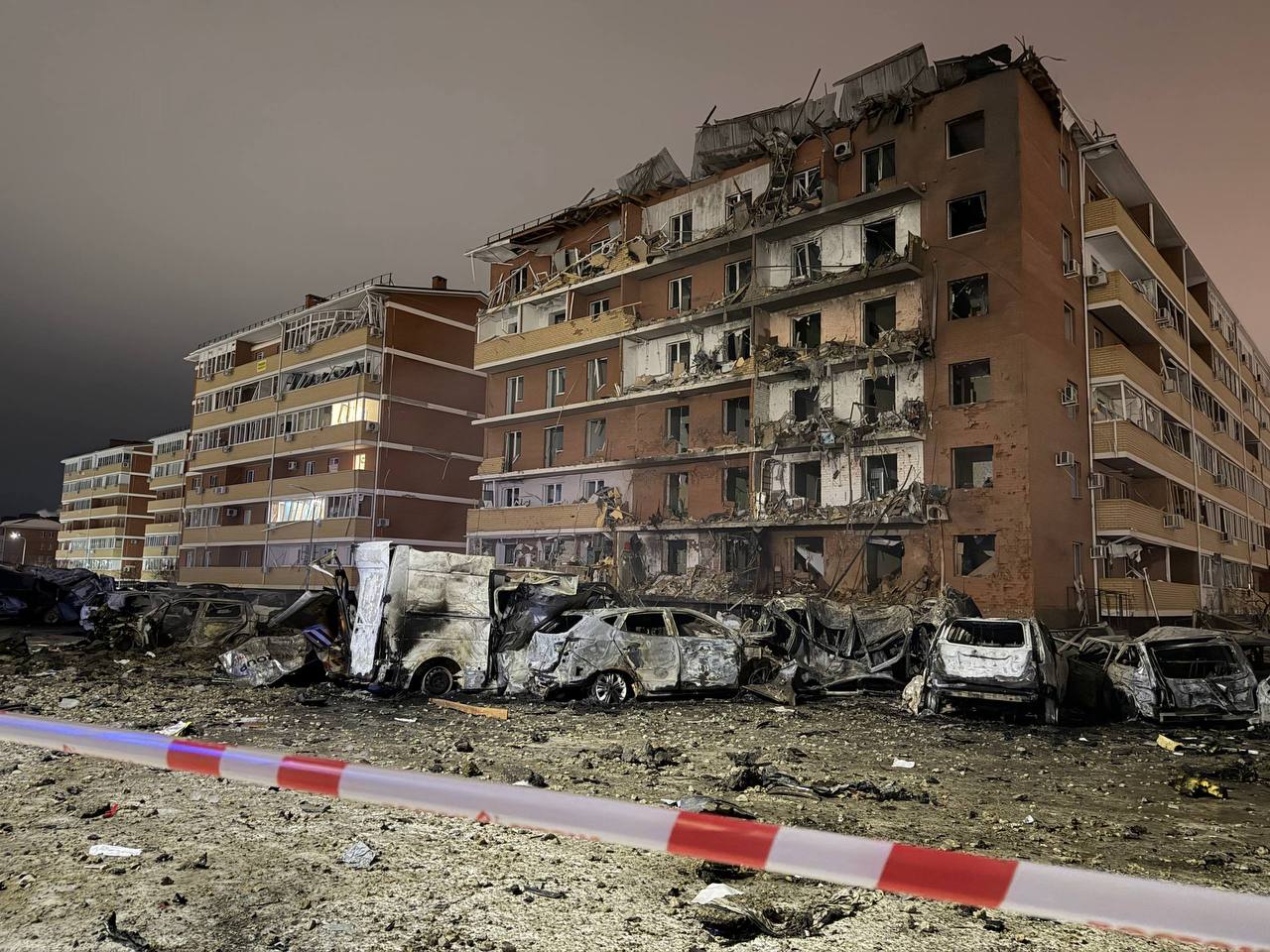The health of Adam Kadyrov, the son of Chechen leader Adam Kadyrov, who was injured in a traffic accident in Grozny, is improving, according to the Agency, citing sources close to the Russian presidential administration and the Chechen authorities.

December 27, 2001
***
At 3 o'clock in the morning in the city of Urus-Martan, Russian servicemen burst into the house of the Dzhabrailovs, living at the address: Gogol Street, 4. At this time, the residents were sleeping. The military got everyone out of bed. In one of the rooms, next to his grandfather, Ibragim Movladievich Dzhabrailov, born in 1985, a 9th grade student at school No. 5, was sleeping. The military tied his hands. They also tied up the grandfather and sealed the elderly man's mouth with tape. The servicemen did not introduce themselves or explain their actions. An unauthorized search began in the house. The military demanded the handing over of weapons. They scattered all the things in the rooms and even broke into the floors, but they never found any weapons. Before leaving, they announced that they were detaining Ibrahim. They refused to give a reason why they were taking the teenager. In the following days, the detainee’s relatives managed to establish that he was being held in the commandant’s office of the Urus-Martan district. But it was not possible to find out what he was suspected of and when he would be released.
The detention of the schoolboy and the search of the house in which his family lived were carried out in gross violation of the requirements of the Code of Criminal Procedure of the Russian Federation. The actions of the military fall under the elements of crimes provided for in Part 3 of Article 286 (exceeding official powers), Article 167 (deliberate destruction or damage to property), Article 301 (illegal detention, detention or detention) of the Criminal Code of the Russian Federation.
According to the information available to the Memorial Human Rights Center, Ibragim Dzhabrailov was not released. After his arrest, he disappeared. It was not possible to obtain additional information about what measures were taken to find out his future fate. When visiting the Dzhabrailovs’ house in Urus-Martan in 2006, none of the family members could be found. Their neighbor said the abducted teen's father and mother had moved. She did not know their new address.
***
In the morning, a bus with workers left the village of Chechen-Aul for Grozny. On the outskirts of the village, an armored personnel carrier blocked his road. The military ordered all the men to get out and lie on the ground. While some were checking the documents of the detainees, others managed to rob several houses located nearby, capture and kill two people.
Ali Bakievich Dalaev, born in 1974, who lived at 20 Kirova Street, was killed. The military broke into his house, breaking through the wall with an armored personnel carrier. Luckily, the people inside, including women and children, were not injured. Without explaining the reasons, the military shot Ali Dalaev with an automatic weapon and fired a control shot into his head. Then they set the house on fire and, taking the body, left.
The military captured 20-year-old Said-Khusein Abdulkhadzhiev. He is a native of the village of Dachu-Borzoy and lived in Chechen-Aul as a refugee. The very next day, his fate became clear: the corpse of Said-Husein, together with the corpse of Ali Dalaev, was taken and thrown at a poultry farm in the village of Starye Atagi. There were residents of this village detained during the cleansing. They identified the dead and found an opportunity to report this to Chechen-Aul. On December 28, fellow villagers and relatives went to collect the remains of Ali Dalaev and Said-Husein Abdulkhadzhiev. They were accompanied by a lieutenant colonel from the Grozny District VOVD and several Ryazan policemen. However, they were not allowed through the checkpoint located on the outskirts of Starye Atagi. It was only on December 29 that the dead were collected. Ginazov, a resident of Chechen-Aul and coach of the republic's freestyle wrestling team, who went to the filter point, described their condition this way: “I was driving the car in which the corpses were being transported. I couldn’t look at them, but I know that Dalaev was riddled with bullets, and Abdulkhadzhiev obviously died from torture and beatings.”
The Dalaev family is famous in their village. Several of its members went missing during the fighting in the republic, another was detained, severely tortured and then convicted, but most of all it was killed.
Thus, in February-March 2000, Movsar Bakievich Dalaev and his cousin Said-Husein Vakhaevich Dalaev disappeared in the area of the village of Goy-Chu. Young people may have ended up in the ranks of the Chechen resistance. But the relatives know nothing about this for certain. There is no information about their further fate. Only faith that they are alive and will someday return home. Hope for this flared up with renewed vigor when, in response to a request from the Grozny District Prosecutor's Office dated October 2, 2000, a response came from Pyatigorsk that they were both being held in the IZ-21/2 institution in the territory of this city. However, they subsequently retracted their letter, saying that the staff “made a spelling mistake.” As of February 2006, Movsar and Said-Khusein Dalaev were listed as having disappeared without a trace.
Another member of this family, Iznaur Bakievich Dalaev, born in 1976, a private security officer, was taken away by Russian security forces from the territory of the plant where he was on duty at the end of September - beginning of October 2000. He had a pistol with him, officially issued before going on shift. The young man was taken to the temporary detention center at the Oktyabrsky District Department of Internal Affairs in Grozny. At that time, police officers from the Khanty-Mansiysk Autonomous Okrug were serving there. For more than three months, his relatives knew nothing about his whereabouts. At the end of December 2000, Akhyad (he did not give his last name) told them about the place of detention of Iznaur Dalaev. According to him, he was kept in the same cell with him for more than 20 days and saw how he was brutally tortured. At the beginning of 2001, Iznaur Dalaev was sentenced to six years in prison. After serving his assigned term, he returned home and then took part as a witness in the trial of Khanty-Mansiysk riot policeman Sergei Lapin, who was accused of torture and possible murder of Zelimkhan Murdalov.
Ali Dalaev, killed on December 27, 2001, was not the last victim in this family. In 2002, during the “cleansing” operation, his younger brother, 17-year-old Sharpudi Dalaev, was killed. At the beginning of February 2006, in the Achkhoy-Martan region of the republic, their cousin Khasan Vakhaevich Dalaev, born in 1965, and his daughter-in-law Dagman Varaeva, born in 1970, disappeared and were later found murdered.
***
In the village of Alkhazurovo, federal forces carried out another “cleansing” operation. The previous similar event in this locality took place from October 8 to 11. During the previous “cleansing operation,” two local residents (Khasolt Khizirovich Sugaipov, born 1950, and Salamu Salmanovich Shalaev, born 1977) were detained and then “disappeared,” several households were robbed, people were beaten, including women, some of the detained people were subjected to electric shock torture.
This time the “cleansing” took place in a milder form and was targeted. No one was detained in the village. The military behaved with restraint. But some village residents claimed that after the Russian military visited them, things went missing from their homes.
From the book “People Live Here”, Usam Baysaev, Dmitry Grushkin, 2006.



